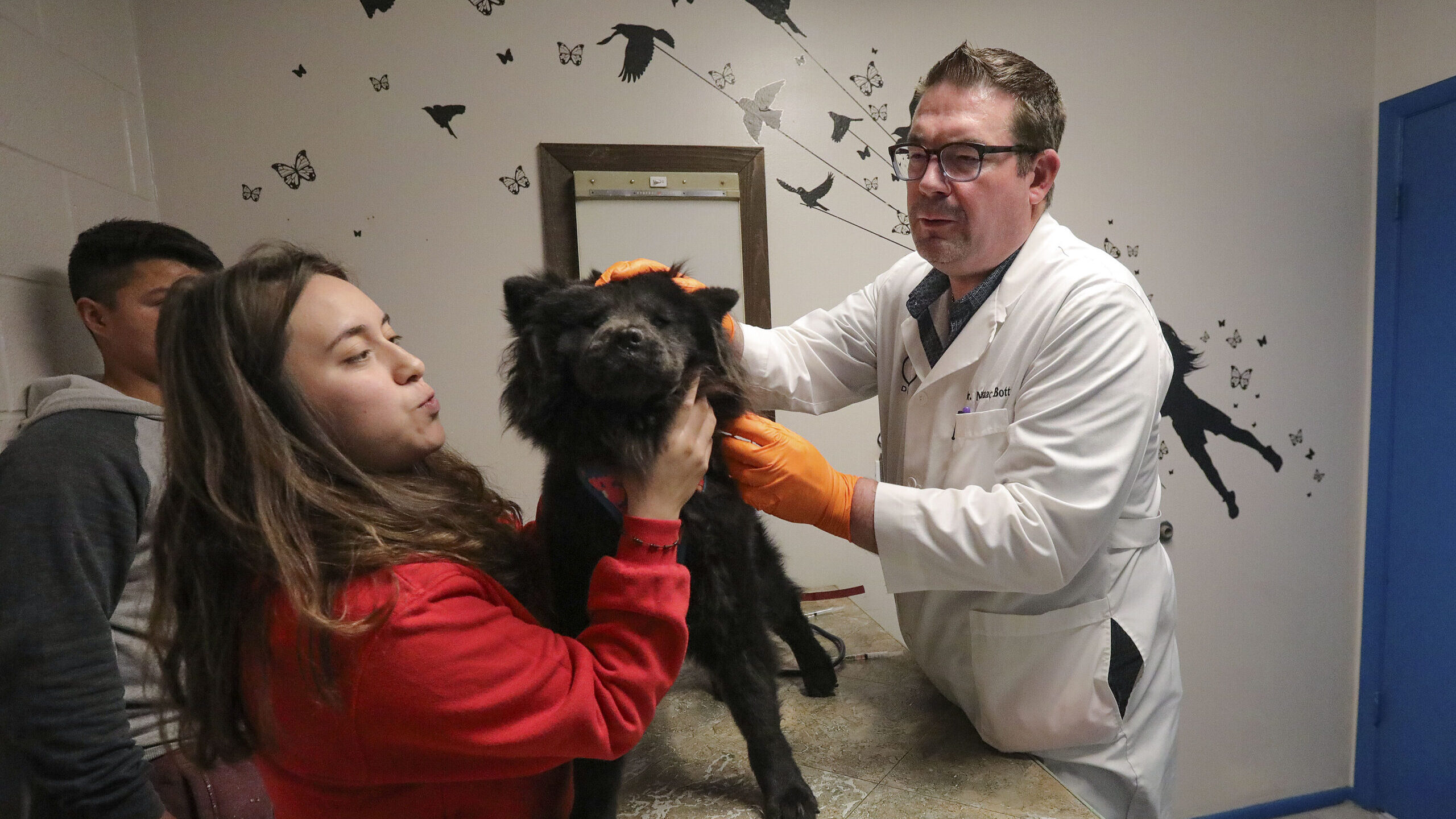Suicide rates in veterinarians far exceed national average, what can be done?
Dec 29, 2023, 7:00 AM

Dr. Isaac Bott, a veterinarian, right gets ready to vaccinate Lunita as Lesly Ramirez helps hold Lunita at Mountain West Animal Hospital in Springville on Thursday, Nov. 4, 2021. (Kristin Murphy/Deseret News)
(Kristin Murphy/Deseret News)
SALT LAKE CITY — The person who takes care of your pets is several times more likely to die by suicide than those in the average population. Research shows that suicide rates are up to four times higher for veterinarians. The veterinary industry is trying to curb this trend.
A 2019 study found that between 1979 and 2015, both male and female veterinarians experienced higher rates of suicide than the rest of the U.S.
Dr. Kim Camacho is a doctor of veterinary medicine who specializes in cats. She said she got into vet medicine for the same reason many do.
“I felt like it was a good way to couple my love of animals with wanting to help people in general too.”
Camacho has been a vet for over two decades. She said the job brings joy through the long-term relationships she develops with her clients. And, she said, she enjoys seeing cats through their entire life.
But the life of a veterinarian comes with its challenges. Now, Camacho works part-time.
“Things have changed in this industry since I first graduated, so there’s much more demand. People Google things, people are much more demanding. And I just know that I could not work full time now, for my mental health.”
Factors in high veterinarian suicide rates
For years now, the industry has struggled with things like staff shortages, low pay, and overwhelming workloads.
On top of that, there’s a big emotional toll too.
“I think it’s compassion fatigue because we’re the doctor for the patient. We’re the counselor and financial consultant for the owners,” Camacho said.
The 2019 study said stressors common to the veterinary world can lead to risk factors for suicide, like depression and burnout.
To address the concerningly high suicide rates, the study pointed in part to several suicide prevention strategies recommended by the Centers for Disease Control.
The veterinary industry is making changes
The industry is also making active changes.
A lot of vet schools around the country now have psychologists and therapists readily available, sometimes even offices in the same building.
Organizations like Not One More Vet aim to provide support to those within the industry, as well as to provide suicide awareness education.
Camacho said she’s noticed the changes firsthand. The clinic she works for is far more attentive to young vets entering the industry.
Suicide prevention resources
If you or someone you know is struggling with thoughts of suicide, call 988 to connect with the 988 Suicide and Crisis Lifeline.
Crisis hotlines
- Huntsman Mental Health Institute Crisis Line: 801-587-3000
- SafeUT Crisis Line: 833-372-3388
- 988 Suicide and Crisis LifeLine at 988
- Trevor Project Hotline for LGBTQ teens: 1-866-488-7386
Online resources
- NAMI Utah: namiut.org
- Suicide Prevention Lifeline: www.suicidepreventionlifeline.org
- American Foundation for Suicide Prevention, Utah chapter: afsp.org/chapter/utah













